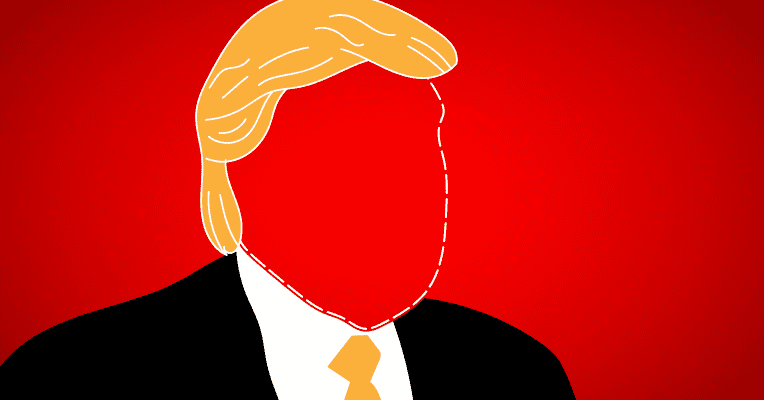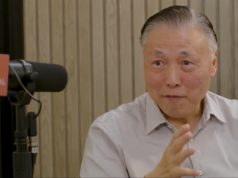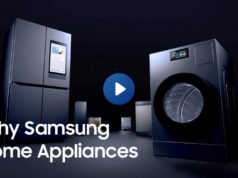Donald J. Trump is now the President-elect of the United States after one of the most surreal and unlikely campaign victories in American history.
Stock markets are already reacting negatively to the reality of a President Trump and the dollar is also falling.
The short-term prospects for the tech economy and Silicon Valley are grim according to economists with knowledge of the Trump platform.
While Trump was vague about his platform on the campaign trail, the broad strokes with which he painted his economic policy don’t bode well for venture capitalists or the broader tech community.
While Gregory Autry, an assistant professor at USC’s Marshall School of Business, believes that manufacturing jobs, including high-tech manufacturing, will benefit from a Trump presidency, the technology firms in the Valley may have a tougher time.
Global Trade
“As tech is oftentimes defined, you’re talking about Silicon Valley,” says Autry. “Trump is definitely a problem for that model. His economic policies are focused on punishing China for its trade abuses and returning manufacturing to the U.S.”
If Trump moves ahead with his plan to impose steep tariffs on goods manufactured in China (essentially rolling back more than twenty years of economic policy focused on increased economic interdependence), it won’t bode well for any American company that relies on the global supply chain (read… any American company).
“That’s going to suck for them,” says Autry.
Immigration
Beyond tariffs making tech products more expensive (and hypothetically forcing companies to return their manufacturing to the U.S), a President Trump is likely to have a significant impact on the issue of immigration.
Silicon Valley has made a huge push to support and expand the H-1B visa program, which enables talented workers from overseas to remain in the U.S. and give them a path to a green card while filling the Valley’s demand for highly skilled jobs. And Trump said he would eviscerate that program.
For the Valley, the H-1B program is a high-tech iteration of the message inscribed on the Statue of Liberty — except they’re highly educated, highly skilled workers rather than huddled masses yearning to be free.
“For the tech industry, [they] should be concerned about the visa programs that are in place to let companies import what are considered necessary workers,” says Autry.
Latest Crunch Report
Renewable Energy
And high-tech manufacturers aren’t the only ones likely to feel the pain under a Trump administration. The burgeoning renewable energy market in the U.S., which has been a bright spot in some corners, is likely to also face tremendous headwinds under the new President’s regime.
Trump will (unsurprisingly) aggressively move to end incentives for alternative energy development, according to a report by S&P Global Platts, an energy analysis firm. “For example, a potential cut in the Investment Tax Credit to 10% from the current 30% would slash solar installation demand by 60%,” analysts for Platts write in their assessment of Trump’s likely energy policy. (Given the overwhelming evidence that supports climate change as a real phenomenon, caused by humans, this is probably not good policy IMHO.)
Even the promises that the candidate made to support the Renewable Fuel Standard (an initiative that largely helps farmers) are suspect.
Platts writes in their energy report:
Trump has offered broad public support to the Renewable Fuel Standard, but in September he unveiled an economic policy package that included a statement that the market underpinning the RFS, the EPA Renewable Identification Number program, “penalises” refiners for not meeting impossible requirements.
After receiving pushback, the statements were removed from the Trump campaign website and staffers claimed they were posted in error. *
*emphasis mine
Cybersecurity
Given all of the attention that hacking and U.S. cybersecurity has received during the election campaign, the Trump plan to address the issue is incredibly and perhaps dangerously vague.
From the 2014 Sony hack to last month’s DDoS attack that shut down a broad swath of the Internet for much of the United States, U.S. internet infrastructure seems to be dangerously exposed, and is definitely critically important. Meanwhile, the Trump campaign’s position on the issue seemed to be nothing more than a way to throw shade at Secretary Clinton for her email mismanagement.
For Silicon Valley companies, there are probably few issues as critical as the protection of the networks that are their lifeblood. And to transform one of their key concerns into a political football whose only purpose is to score a few cheap points on an opponent seems.. like a flawed strategy. Especially when those networks are vital to support companies that are among the top 10 most valuable in the global economy.
The IPO Market and Big Corporate M&A
Remember that IPO window that had opened up in the latter half of the year? And how folks were expecting it to remain open in 2017. According to Autry, the landscape is changing.
Crunchbase
-
Donald J Trump
-
Bio
Donald John Trump (born June 14, 1946) is an American business magnate, investor, author, television personality and candidate for President of the United States in the 2016 presidential election. He is the chairman and president of The Trump Organization, and the founder of Trump Entertainment Resorts. Trump’s career, branding efforts, lifestyle and outspoken manner helped make him a celebrity, a … - Full profile for Donald J Trump
-
Bio
It’s finance, so nothing is certain (and before the market open in the U.S. there are some signs that are pointing to a stabilization), but the precipitous decline in U.S. stocks — coupled with a period of regulatory uncertainty while the country and the world figures out which Donald Trump they’re getting (populist hero, or unscrupulous billionaire real-estate magnate) — probably means that public offerings are going to be on hold.
“IPOs are going to seize and venture capital is going to slow in the short term,” says Autry.
Public offerings aren’t the only liquidity events that could dry up under President Trump. In the waning days of his campaign the candidate lashed out against large corporate M&A deals like the bid AT&T made for Time Warner.
At a campaign stop in October, Trump railed against the deal, saying:
“As an example of the power structure I’m fighting, AT&T is buying Time Warner and thus CNN, a deal we will not approve in my administration because it’s too much concentration of power in the hands of too few.”
It’s Mostly Doom and Gloom… But Not Entirely!
Despite the pretty grim outlook for the Valley, businesses can take heart in the fact that a lack of regulatory oversight can do wonders for companies’ bottom line. The proposed gutting of the Consumer Finance Protection Board, will likely mean that fintech companies will have an easier go of it (especially lenders).
And according to reports from Reuters, drug stocks are looking like they’ll rebound. And who doesn’t love an emboldened pharmaceutical industry.
Beyond that, Autry sees big gains for corporations through corporate tax cuts and a beneficial deal on the repatriation of foreign assets. “There will be positive incentives to repatriate capital that has been abroad,” says Autry, who expects that this repatriation will come with demands for reinvestment in domestic job growth.
Finally, American manufacturers in the space and aerospace industry are likely to benefit from the new fiscal policies of a Trump Administration. “The plans to reduce regulation and reduce taxes will help them,” Autry said.
**With all of this potential sound and fury, it’s important to note that it could signify nothing (I hate writing that sentence as much as you hate reading it). In fairness, given the mercurial nature of the candidate, it’s unclear what a Trump policy will actually look like.
When you are too fast to print your stuff pic.twitter.com/sgVOvxbCCR
— George Achillias (@thibetian) November 9, 2016







